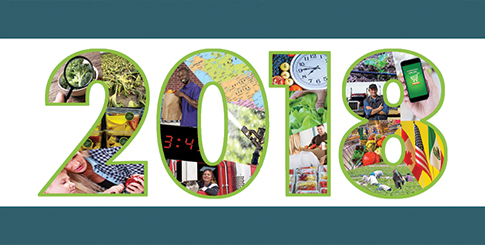Mike Kienzlen, principal of Retail Profit Solutions, puts it this way: “The relationship is key—it can get to the point where produce growers [decide] how many plants to grow based on retailer feedback.”
New varieties are prime partnership material, notes Kristen Park, extension associate at Cornell University’s Food Industry Management Program, and often a win-win for both growers and retailers.
She cites a 2017 Walmart venture in which growers were given a specific Bayer cantaloupe seed for the upcoming winter crop. “That’s an example of a retailer engaging directly, working with vendors and suppliers about what to grow for them on the production side,” Park says.
Changing retail landscape
The ramifications of Amazon’s purchase of Whole Foods, the strength of Lidl as a disruptor, and small retail footprints are all topics for 2018.
“I believe the fresh produce industry will benefit from the many innovative and hybrid concepts starting to emerge, be it Amazon buying Whole Foods and making organic produce more affordable and accessible, or conventional retailers experimenting with a different store layout putting more emphasis on fresh,” says Anne-Marie Roerink, principal of 210 Analytics in San Antonio, TX, and author of The Power of Produce 2017.
Some believe Lidl will have an uphill battle to wrest customers away from Aldi, at least in the short term.
“The Aldi business model is hard to beat for traditional players from a financial output perspective,” notes Roerink. “The smaller footprint, assortment of some 1,500 SKUs versus 43,000 for the average grocery store, and avoiding large investments in personnel or décor means Aldi has a completely different margin model than most U.S. retailers.”
To battle Aldi, Lidl, and specialty retailers, traditional supermarkets have been opening smaller formats to compete. “Small box and dollar stores will keep coming,” observes Kienzlen. “Consumers don’t need 10 varieties of organic mustard to choose from.”
After a somewhat slow start, Roerink believes online produce sales will continue to climb. “If retailers can show they pick fresh produce better than the customers themselves, they’ll have loyal followers.”
More importantly, Roerink notes, “millennials and Gen Z are not as knowledgeable in picking and preparing many fruits and vegetables, whereas older shoppers often can’t imagine anyone else selecting their produce. A millennial is more likely to trust an expert.”



